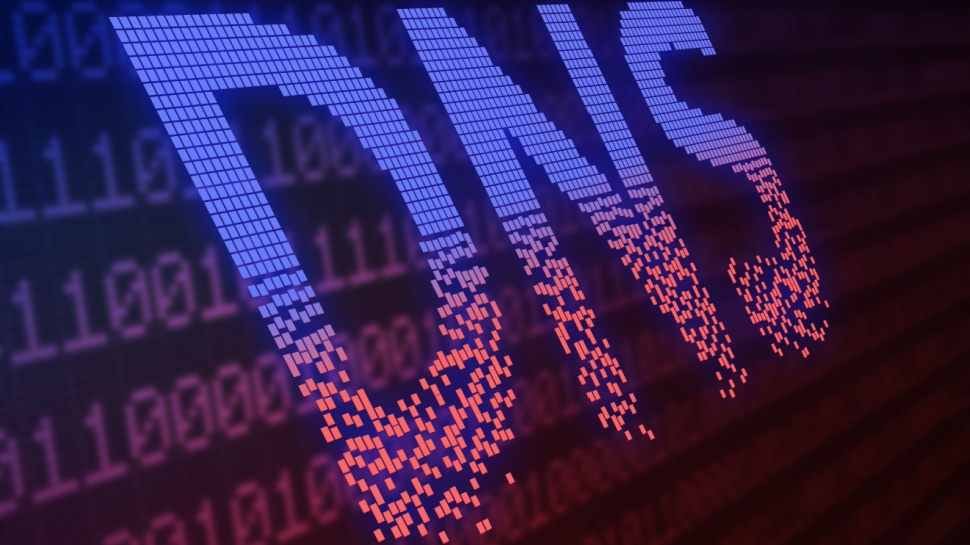- The EU unveiled its very personal DNS resolver, promising to be extra privacy-compliant and cyber resilient
- The DNS4EU comes as a substitute for main US-based providers and contains built-in filters to dam harmful site visitors
- Whereas it stays voluntary for all EU residents, some privateness consultants warn in opposition to potential points round content material filtering and privateness
The European Union has formally unveiled its very personal DNS resolver, which guarantees to strengthen privateness and safety for EU residents, authorities organizations, and telecom suppliers throughout the bloc.
The DNS4EU needs to be a substitute for main US-based public DNS providers (like Google and Cloudflare) to spice up the EU's digital autonomy by decreasing European reliance on overseas infrastructure.
This isn't solely an EU-developed DNS, although. The DNS4EU comes with built-in filters in opposition to malicious domains, like these internet hosting malware, phishing, or different cybersecurity threats. The house consumer model additionally contains the chance to dam advertisements and/or grownup content material.
Whereas its utilization stays voluntary, some privateness consultants warn in opposition to potential points round content material filtering and privateness.
What’s the DNS4EU?
Because the EU Fee wrote on its official web site: "The aim of DNS4EU is to make sure the digital sovereignty of the EU by offering a non-public, secure, and impartial European DNS resolver."
Brief for Area Identify System, a DNS resolver acts because the Web cellphone e book, translating consumer requests into strings of numbers – IP addresses – to attach them with the appropriate web sites.
Each time you connect with the web, it's your Web Service Supplier (ISP) that chooses the DNS to reroute your site visitors. But, a company or finish customers alike would possibly select to modify providers to enhance connection speeds, improve safety and privateness, or higher management the content material geo-location (equally to what the most effective VPN do).
First unveiled in October 2022, the venture was developed beneath the supervision of the EU cybersecurity company ENISA and is at present managed by a pan-European consortium led by Czech cybersecurity agency Whalebone, which incorporates consultants from throughout 10 EU international locations.
The DNS4EU, which the EU ensures "won’t be compelled on anybody," has been developed to fulfill completely different customers' wants.
The house customers' model is a public and free DNS resolver that comes with the choice so as to add filters to dam advertisements, malware, grownup content material, or all of those, or none. There's additionally a devoted model for presidency entities and telecom suppliers that function throughout the European Union.
As talked about earlier, the DNS4EU comes with a built-in filter to dam harmful site visitors alongside the power to supply regional risk intelligence. Because of this a malicious risk found in a single nation might be blocked concurrently throughout a number of areas and international locations, de facto halting its unfold.
"DNS4EU risk intelligence is enhanced by Laptop Emergency Response Groups (CERTs) and different establishments throughout the EU, offering info on EU-specific threats, in addition to by the information about cyberattacks gathered via the telco companions," the EU explains.
What are the consultants saying?
The power to filter undesirable content material has sparked issues amongst consultants since its inception.
For instance, talking to Torrentfreak in 2022, a former MEP for the German Pirate Get together, Patrick Breyer, identified how "a government-run DSA scheme comes with the danger of on-line censorship."
Speaking to TechRadar on the time of writing, Breyer welcomes the choice to go away site visitors filtering capabilities as non-obligatory. "Nonetheless, it stays to be seen how the operator will react to calls for for filtering. Utilizing a government-sponsored service could be a danger due to legislation enforcement and intelligence companies' needs," he mentioned.
The Senior Director for European Authorities and Regulatory Affairs on the Web Society, David Frautschy Heredia, additionally warns in opposition to potential dangers associated to content material filtering, arguing that "safeguards needs to be developed to forestall abuse."
Heredia additionally fears that making use of geographic borders to world infrastructure could convey extra hurt than good in the long term.
He informed TechRadar: "This normalizes the method and will encourage different actors around the globe to introduce their very own DNS resolvers, which can be obligatory to make use of. Different international locations, together with Mauritius and Kazakhstan, have beforehand tried to impose the obligatory use of nationwide DNS resolvers, with the potential of indiscriminate filtering."

Apart from these potential points, Breyer additionally famous that the DNS4EU lacks a no-log coverage. It is a assure that no file of customers' actions is ever saved.
As per the DNS4EU coverage issued on June 1, 2025, the service collects a restricted variety of DNS question knowledge and IP addresses. The latter are most anonymized straight on the DNS resolver.
But, "The logging of all requests – even when largely anonymised – comes with dangers," Breyer informed us.
On its aspect, the EU guarantees to by no means share any info that might determine a person. It additionally rejects any issues about censorship, promising the EU won’t have any entry to configuration and customers' knowledge alike.
"DNS4EU just isn’t a means towards censorship, however really towards knowledge safety and higher web safety and sovereignty for Europeans," reads the official web site.
You may additionally like
- Surfshark has launched a free, privacy-first, public DNS service
- "DNS resolvers aren’t a censorship software" – consultants warn in opposition to the dangers of rising web blocking
- "A harmful precedent" – The VPN trade reacts to France’s order to dam unlawful streaming websites
